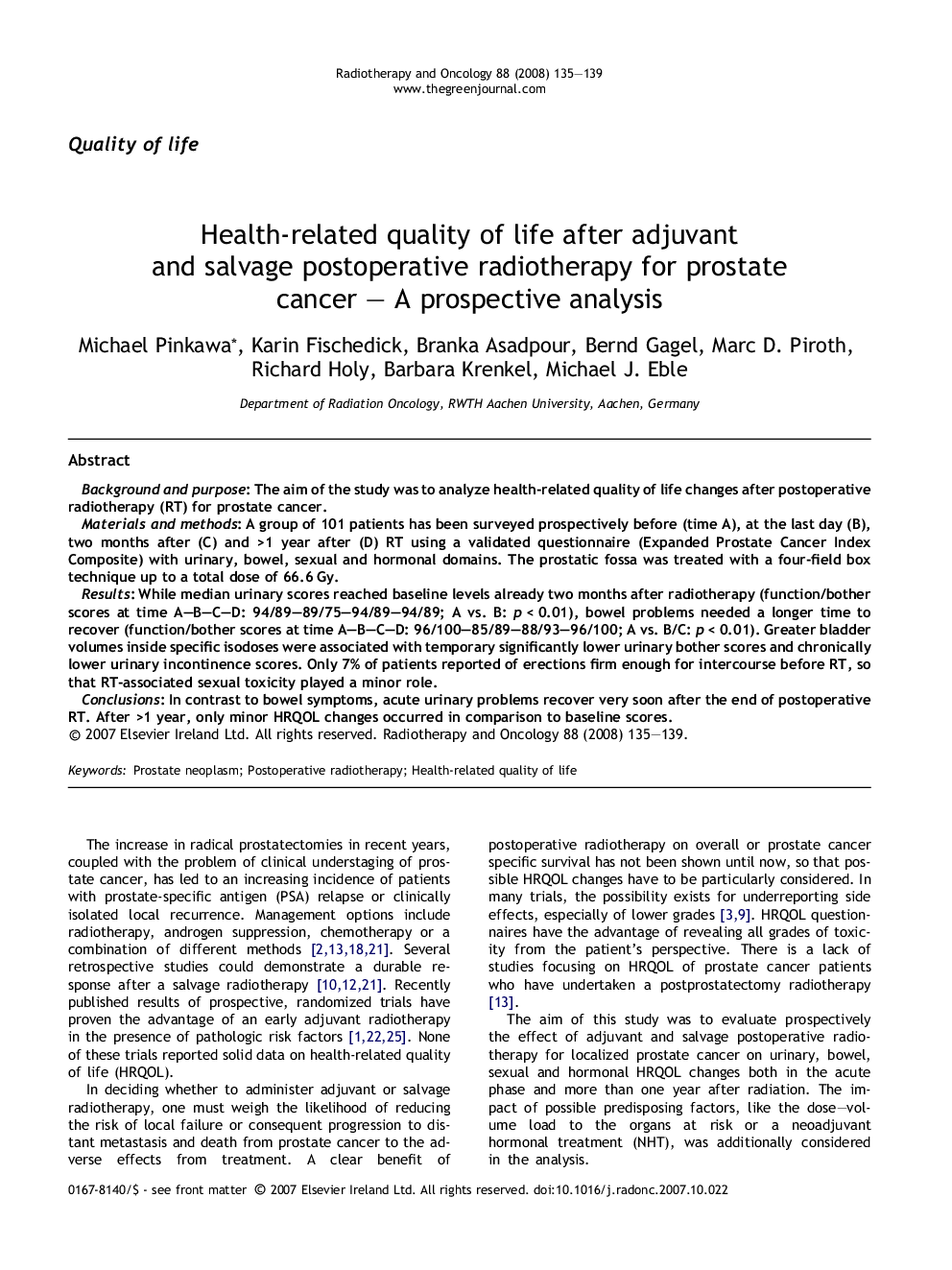| Article ID | Journal | Published Year | Pages | File Type |
|---|---|---|---|---|
| 2160234 | Radiotherapy and Oncology | 2008 | 5 Pages |
Background and purposeThe aim of the study was to analyze health-related quality of life changes after postoperative radiotherapy (RT) for prostate cancer.Materials and methodsA group of 101 patients has been surveyed prospectively before (time A), at the last day (B), two months after (C) and >1 year after (D) RT using a validated questionnaire (Expanded Prostate Cancer Index Composite) with urinary, bowel, sexual and hormonal domains. The prostatic fossa was treated with a four-field box technique up to a total dose of 66.6 Gy.ResultsWhile median urinary scores reached baseline levels already two months after radiotherapy (function/bother scores at time A–B–C–D: 94/89–89/75–94/89–94/89; A vs. B: p < 0.01), bowel problems needed a longer time to recover (function/bother scores at time A–B–C–D: 96/100–85/89–88/93–96/100; A vs. B/C: p < 0.01). Greater bladder volumes inside specific isodoses were associated with temporary significantly lower urinary bother scores and chronically lower urinary incontinence scores. Only 7% of patients reported of erections firm enough for intercourse before RT, so that RT-associated sexual toxicity played a minor role.ConclusionsIn contrast to bowel symptoms, acute urinary problems recover very soon after the end of postoperative RT. After >1 year, only minor HRQOL changes occurred in comparison to baseline scores.
